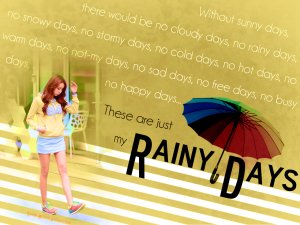Esta resenha pode conter spoilers
A light, fluffy drama that inadvertently highlighted an unnoticed part of Chinese society
Overall, I enjoyed watching this drama, and I think the female lead did a pretty good job in depicting the different personalities of the twins. Granted, I've also only seen her in Sparkle Love, where she acted even more introverted than the 2nd twin, so I was glad to see her portray an entirely different personality this time around. It wasn't a mind-blowing drama, but it was an easy, fluffy watch that didn't make me feel annoyed at any of the characters, problems were solved in due time and not dragged out unnecessarily, and the decisions they made seemed fitting for the situations, so I definitely enjoyed it much more than some of those other low-production rom-coms I've seen in the past.
Now in regards to the "racist statement"... I am in no place to be offended as I am neither Filipino nor am I a maid/house worker, but I don't think that saying someone looks like any stereotyped human being is ever meant to be a kind comment, regardless of whether the subject is a certain race or not. Prior to this line, he also said she looked like a 大嬸, or an "older middle-aged woman" (like an "ajumma" if you know Korean). Is that not offensive to those women as well?
Of course, the scriptwriter(s) could've used other terms to describe those dresses, but to me, the choice and use of this term is a reflection of human nature and Chinese society today. Because we are human, it's impossible to understand the details of every race and culture, which is why stereotypes exist. Being the arrogant, prideful character from a rich background that he is (especially at the beginning of the series), it shouldn't be too surprising if he says something mean or offensive - he's just not that type of considerate guy. Besides the fact that it's a commonly used everyday term like 大嬸/ "older middle-aged woman", and that it may not have been ethically correct to have him say something potentially offensive, outright choosing not to acknowledge it by leaving it out of the script doesn't mean it doesn't exist in the real world.
Although foreign domestic helpers are a real part of Chinese society (as well as in other countries too, I'm sure), they are rarely ever mentioned, never mind highlighted in dramas. But the topic came up, don't just pick your side and move in. Instead, go look up and read about domestic and foreign domestic workers in China (I did) and learn more about them so next time you meet someone who is really stereotyping (maybe even worse and more regularly), you can tell them exactly how it is.
Now in regards to the "racist statement"... I am in no place to be offended as I am neither Filipino nor am I a maid/house worker, but I don't think that saying someone looks like any stereotyped human being is ever meant to be a kind comment, regardless of whether the subject is a certain race or not. Prior to this line, he also said she looked like a 大嬸, or an "older middle-aged woman" (like an "ajumma" if you know Korean). Is that not offensive to those women as well?
Of course, the scriptwriter(s) could've used other terms to describe those dresses, but to me, the choice and use of this term is a reflection of human nature and Chinese society today. Because we are human, it's impossible to understand the details of every race and culture, which is why stereotypes exist. Being the arrogant, prideful character from a rich background that he is (especially at the beginning of the series), it shouldn't be too surprising if he says something mean or offensive - he's just not that type of considerate guy. Besides the fact that it's a commonly used everyday term like 大嬸/ "older middle-aged woman", and that it may not have been ethically correct to have him say something potentially offensive, outright choosing not to acknowledge it by leaving it out of the script doesn't mean it doesn't exist in the real world.
Although foreign domestic helpers are a real part of Chinese society (as well as in other countries too, I'm sure), they are rarely ever mentioned, never mind highlighted in dramas. But the topic came up, don't just pick your side and move in. Instead, go look up and read about domestic and foreign domestic workers in China (I did) and learn more about them so next time you meet someone who is really stereotyping (maybe even worse and more regularly), you can tell them exactly how it is.
Esta resenha foi útil para você?



















